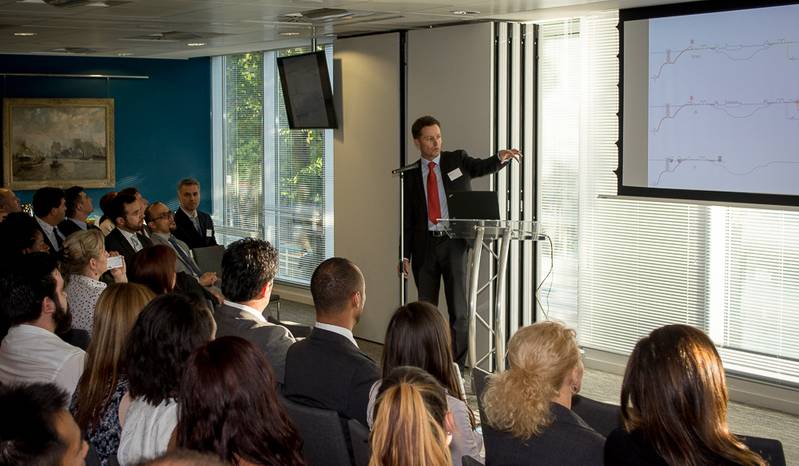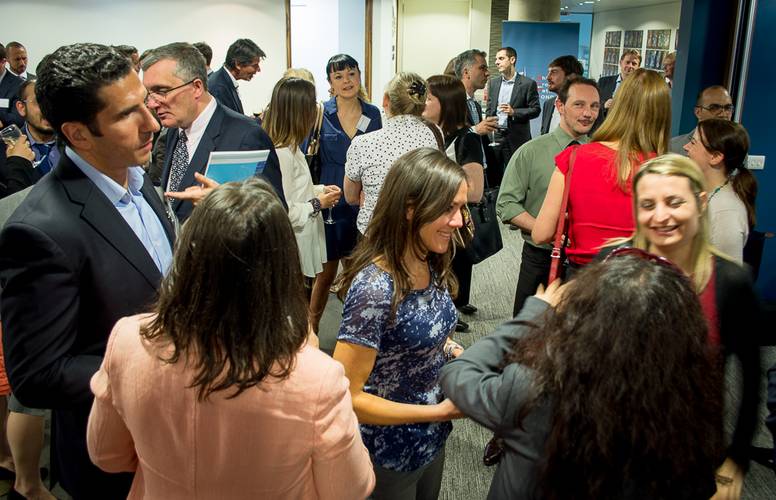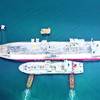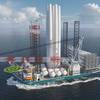Alternative Fuels: Safer, Smarter, Greener
Shipping Professional Network in London (SPNL) hosted another well attended event, sponsored by DNV-GL and held at the UK Chamber of Shipping offices in London. Martin Crawford-Brunt (UK & Rep of Ireland Manager for DNV-GL) was keynote speaker for this event, covering three main topics:
- Navigating the raft of upcoming regulations in a cost-effective way
- Alternative fuels and niche solutions/new technologies
- Reducing operating expenses to increase competitiveness
Organized as an independent, autonomous foundation, DNV-GL serves a range of industries, with a special focus on the maritime and energy sectors. Established in 1864, the company has a global presence with a network of 300 offices in 100 countries, and is headquartered in Oslo, Norway.
Martin, responsible for DNV-GL’s Maritime business in the UK and the Republic of Ireland, spoke of the challenges of energy efficiency and the shipping industry being prepared to embrace future changes. “I think everybody realizes we are entering a challenging decade, looking at the increased number of stricter regulations coming in at a rapid pace and, more importantly, with unclear implementation or enforcement dates. When you look at tonnage oversupply, rising operating costs, global energy prices and the volatility connected to those, together with technology, it has become very difficult to choose what to do and when to do it.”
Of course the backdrop to this is an increase in tonne miles in global shipping – approximately 4% on a global basis as the world economy grows. There will always be a demand for shipping but also shipping has a responsibility to be environmentally sound and to play its part in reducing global emissions.
Martin talked about the range of alternative fuels, stating all options having a place in the future; “There is increasing interest in LNG, ship electrification, biofuels and also LPG and methanol but there are other possibilities too,” he said. “Rather than there being only one solution, either its LNG or not, or its methanol or not, it’s either batteries or not, we think it’s going to be everything and, in a way, we should hope it is going to be everything - that’s the only way to bring down the cost in terms of fuel -utilizing all the options available to you.”
He went on to discuss the importance of looking at the costs involved in creating these new fuels and the lifecycle assessment of fuels – the cost of getting it out of the ground and into a distribution system, as well as ‘tank to propeller’ - looking and comparing the potential propulsion, emissions and efficiencies that derive from new fuels, along with availability.
“Nothing is going to replace oil based fuels for a considerable period of time in terms of availability. Natural gas is the next option and there is more and more liquefied natural gas (LNG) coming into the market so the availability is quite important when we are thinking about how this can have an impact for global shipping.” Martin added. With more and more owners looking at LNG and being LNG ready, DNV-GL will work with owners to evaluate their needs and the best options for their vessels. Some owners are preparing vessels to be LNG ready ahead of upcoming regulations and to also attract future charterers, which delays 60-70% of the cost until they wish to implement it - when the market needs it - a smart way of planning for optionality in the future.
Martin concluded “Things are changing very, very rapidly; there are a whole host of solutions out there. Speed of regulatory change is a bit of a ‘game-changer’, and things like sulphur caps are quite significant in terms of operating costs, both as opportunities and challenges. For companies to stay ahead in these challenging operating environments, it will become increasingly important to be able to access better information and systems and DNV-GL are investing in understanding, integrating and optimizing the whole system. Enhancing the business performance while reducing the risk requires sound technical and commercial understanding and that is an area where we are trying to stay in the forefront, in terms of our investment in R&D and what information we publicly produce.”
After the keynote presentation, a question and answer session took place, with a number of SPNL members taking the opportunity to gain further industry insight by asking some pertinent and challenging questions.
Claudio Chiste, SPNL Chairman from Investec Bank shipping & marine finance, said, “We are delighted to have secured Martin, yet another high profile speaker, who gave members an engaging view of the future of alternative fuels and technologies. We are grateful for DNV-GL for all their support, and that from the UK Chamber of Shipping for hosting us. SPNL shares the view of our Honorable Affiliate; the UK Chamber of Shipping that diversity of the maritime cluster is regarded as valuable and as strengthening the maritime fabric of the UK. With so many young members and guests from all aspects of shipping, we had a good range of questions and we continued discussions and networking over drinks at The Mudlark afterwards - another hugely successful SPNL event.”
spnl.co.uk














